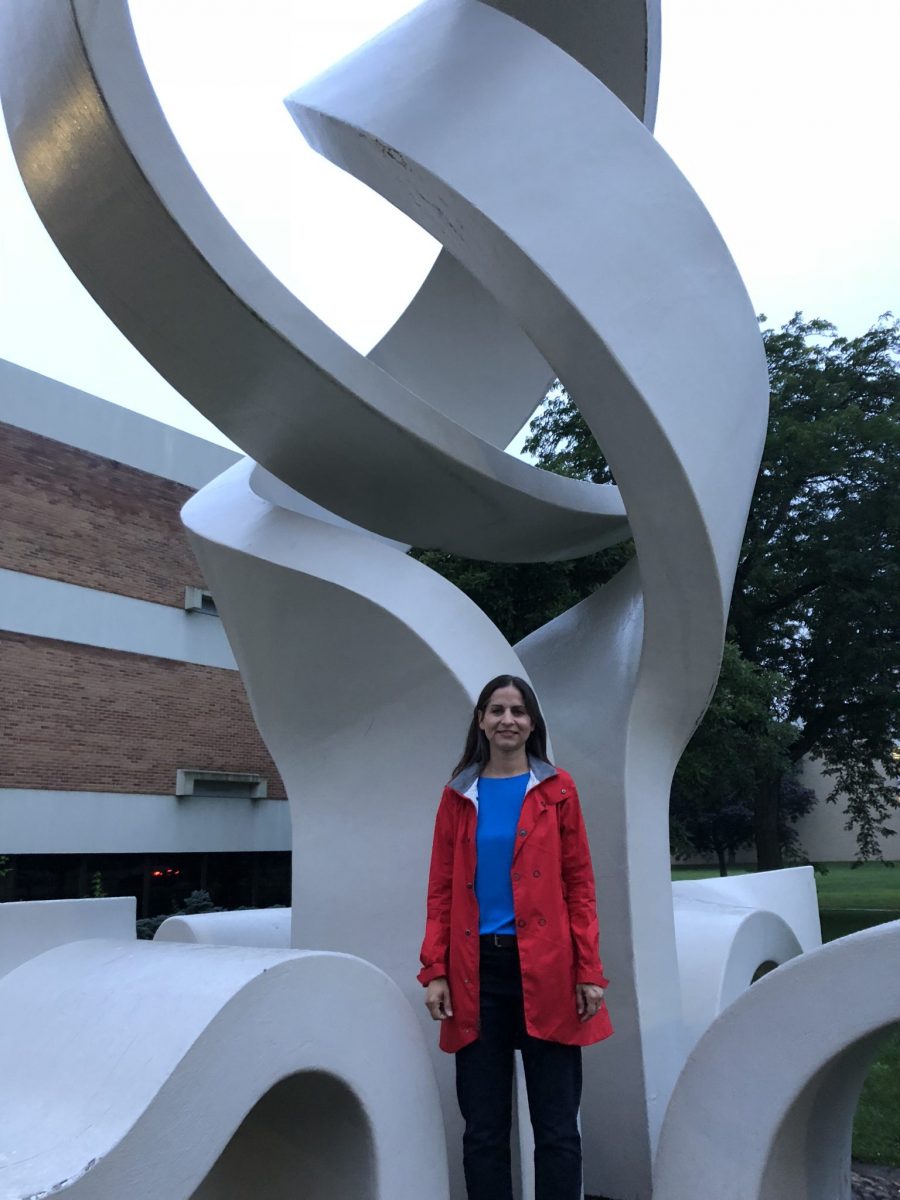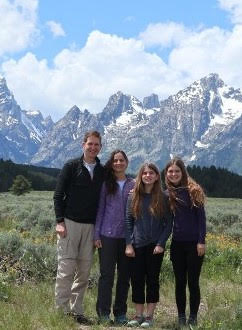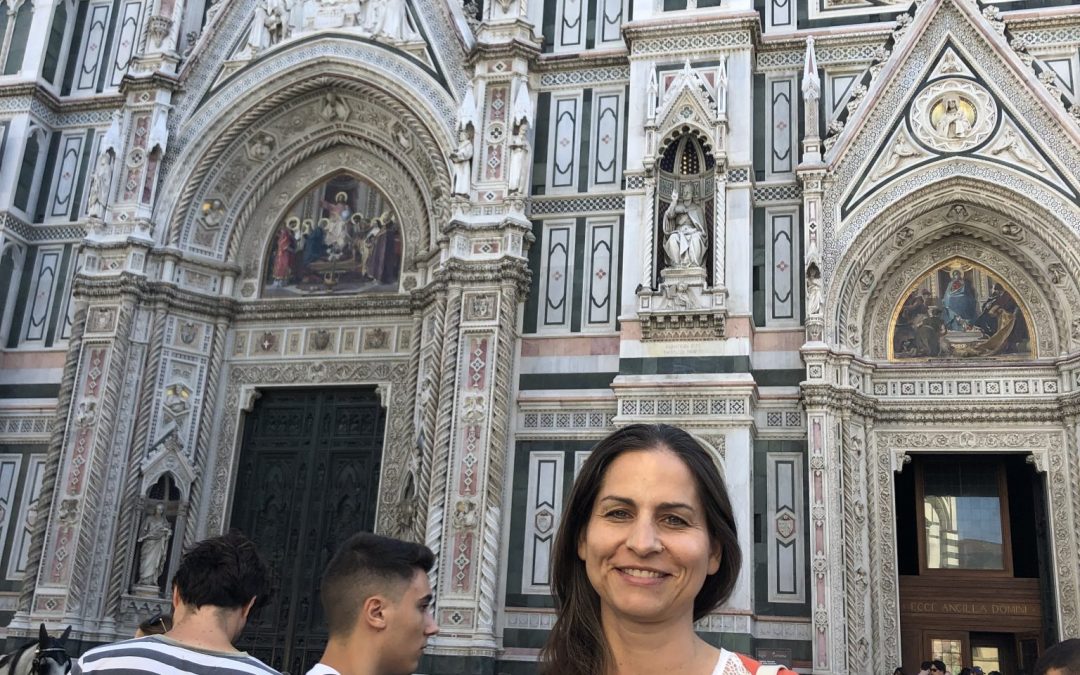I met with Honors faculty member Dr. Motschiedler, who is the Chair of the Department of Chemistry and Biochemistry as well as the Chair of the Pre-Health Recommendation Committee at La Sierra University.
What is your educational background?

I attended Andrews University for my undergraduate education where I got my Bachelor’s Degree of Science in Chemistry and was one class short of an Art History minor. In my undergrad, I knew that I wanted to study something in the sciences, and although I was pushed to pursue medicine, I soon realized that I wanted to study something different. I had heard of how difficult organic chemistry was, and I was worried about taking it. However, once I entered the class, I fell in love with organic chemistry, and I knew that this is what I wanted to study. The chemistry department faculty at Andrews were very supportive and encouraged me to pursue my education in chemistry to the graduate level. I was a part of the Honors program at Andrews, and I enjoyed taking more specialized classes, just like how the Honors Scholarship Project motivated me to pursue my education in chemistry in the future. For my Honors Scholarship Project, I spent a summer at Bowling Green State University in their research program, where I participated in photochemistry research. The topic of photochemistry carried into my graduate education where I researched reactions initiated by light.
I attended UCLA for my graduate studies where I graduated with my Ph.D. in Physical Organic Chemistry. During the start of my graduate studies, I didn’t realize that I wanted to pursue education and become a professor until I became a Teaching Assistant. I worked as a TA for undergraduate students at UCLA to help with my tuition, and I saw that I really enjoyed teaching. This motivated me to pursue chemistry education and did a post-doc in that field at UCLA. After graduating with my Ph.D., I taught at Orange Coast College for a few semesters, and then I interviewed at La Sierra University and have now been a faculty member in the chemistry department here for 20 years.
What class do you teach for the Honors Program, and what has been your experience in the program?
The class that I teach for the Honors Program is UHNR 114: The Scientific Process. This is a course that Honor students usually take during the Winter Quarter of their freshman year. The students in this course lead out in their own personalized research and learn the process of scientific critical thinking. When I started teaching this course, I was team teaching with biology professor Dr. Gary Bradley. He was a mentor to me who was very open-minded and believed that students could rise to the expectations given to them and could be successful in what they decided to pursue.
The best thing about being an Honors faculty member is having the opportunity to teach all of the fantastic students in the program. It’s fun being a teacher to a group of students like this because of their enthusiasm for learning and willingness to take on challenges.
When I became a faculty member at La Sierra, Dr. Gary Bradley would host an Honors pizza vespers for the students and faculty. Once he retired, he passed the tradition on to me, and I have kept it alive ever since. When I was an Honors student at Andrews, I appreciated connecting with the faculty there and going to some of the faculty members’ houses, and I want the Honors students at La Sierra to have the same opportunity for that.

What are your interests and hobbies outside of academics?
I enjoy reading a lot over the summer and during breaks. My favorite literary fiction book at the moment is The Overstory by Richard Powers which talks about trees and our environment and what humans are doing to trees. I also have a strong appreciation for art and its history, hiking, outdoor activities, and traveling. A few of my favorite places that I have traveled to include Italy, Costa Rica, and Iceland. I hope to do some more traveling and visit places such as Machu Picchu in Peru and Mount Kilimanjaro in Tanzania.A favorite art piece I saw recently is The Annunciation by Leonardo Da Vinci, which is in the Uffizi Gallery in Florence, Italy. Although I don’t personally do art myself, I have a love and appreciation for it.
What advice do you have for students as they continue in academics, especially those dealing with self-doubt and burnout?
We have all felt it. As an undergrad student, I was terrified to start organic chemistry, but I would look at all of the students who had passed the class in previous years, and I reminded myself that if they could do it, so could I. Every new challenge seems scary at first but is possible to face and overcome. Look at past successes and remind yourself of those and the trajectory you are on and use that to motivate you. Instead of looking at the bumps in your path, think of how you overcame past doubts and trust that you will get there.
Is faith a big part of your life? If so, why?
Yes, faith is a big part of my life. This is one of the reasons why I’m teaching at an Adventist institution. I was born and raised in an Adventist community, and it is very meaningful to me. I see faith as believing in something bigger than myself, and it gives me purpose and meaning. Faith makes an impact on how we behave towards people and the planet, and it gives us a responsibility in how we treat each other and this Earth. I have seen that scientists are comfortable with not knowing everything, and this has shown me that faith and science are compatible. As one of my chemistry professors at Andrews liked to say, education “expands the sphere of ignorance,” meaning that as we learn new things, we also learn how much we don’t know. I have learned to be okay with that ambiguity. Faith shows me that there is always more to learn, which is okay because I know that I can keep on growing.
–– Diana Quiroz (Class of 2023, Health Science: Clinical Health Studies)

